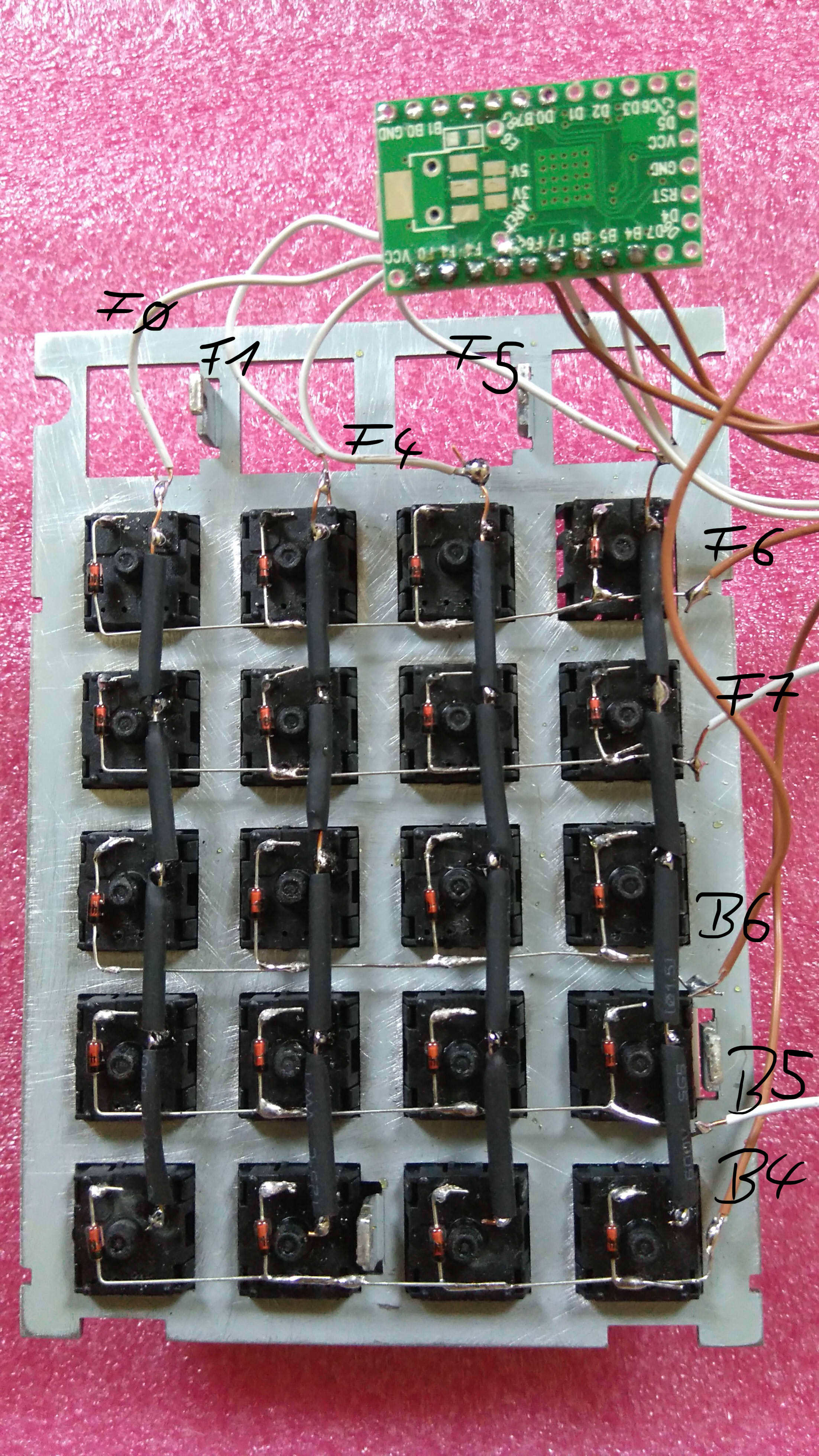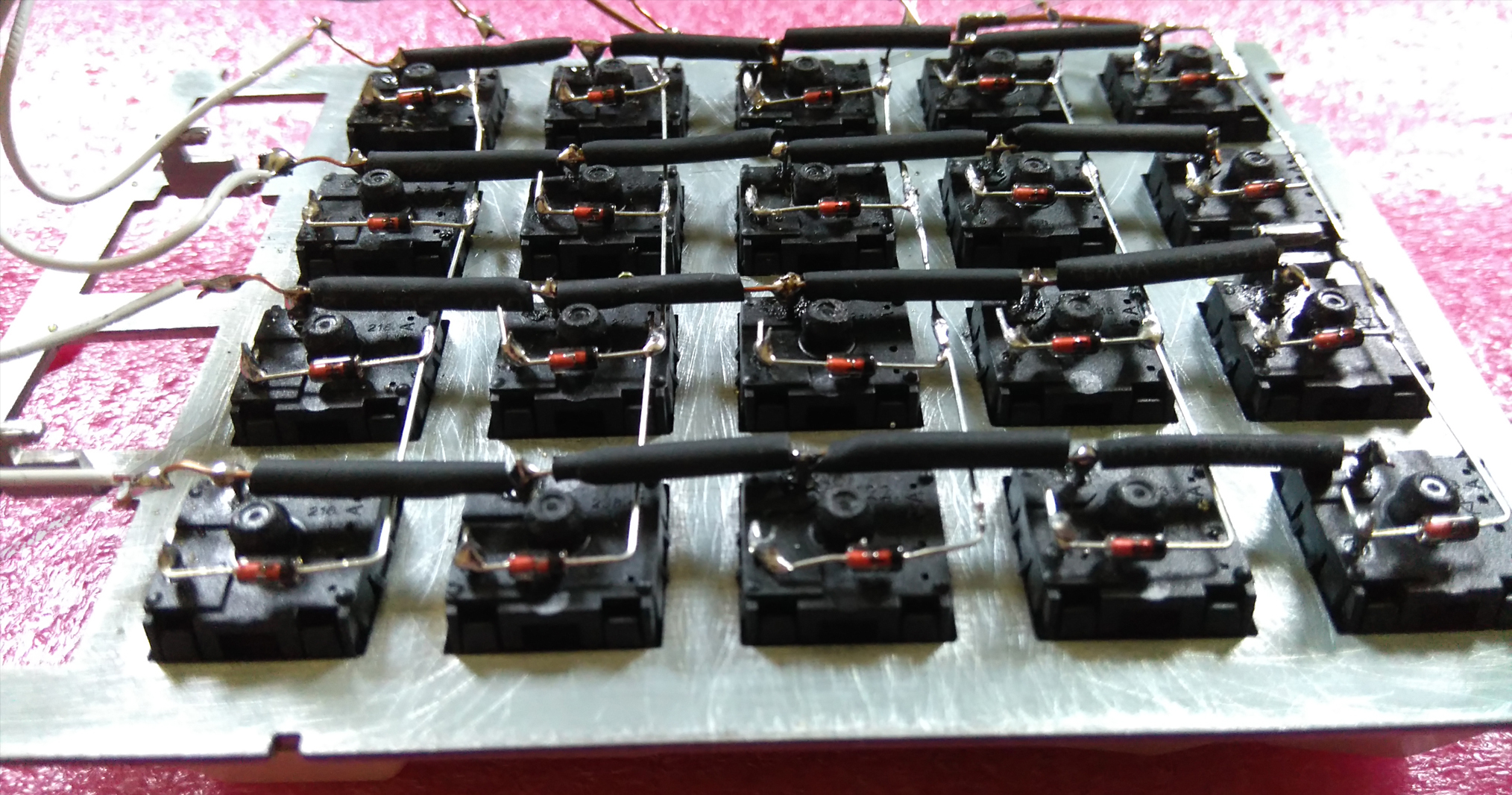It would be helpful to know which 3 characters are repeated, I bet it's actually 4 and you just can't see the pause or end, or maybe F3 and down...
Also please can you post a pic of your wiring? Your grid matches the source so it must be a problem there 
The characters repeated are 7, 8 and F1, causing my computer to open the help menu and filling its search bar with a stream of 78 on plug in. The F1 switch looked kinda bad after soldering so I checked how it looked on the inside, also used a new diode on this switch.
Edit: I just checked the board again with Aquakeytest and it's actually inputting F1, F2, F3, F4, 7 and 8 repeately.


Thanks for your help and time!